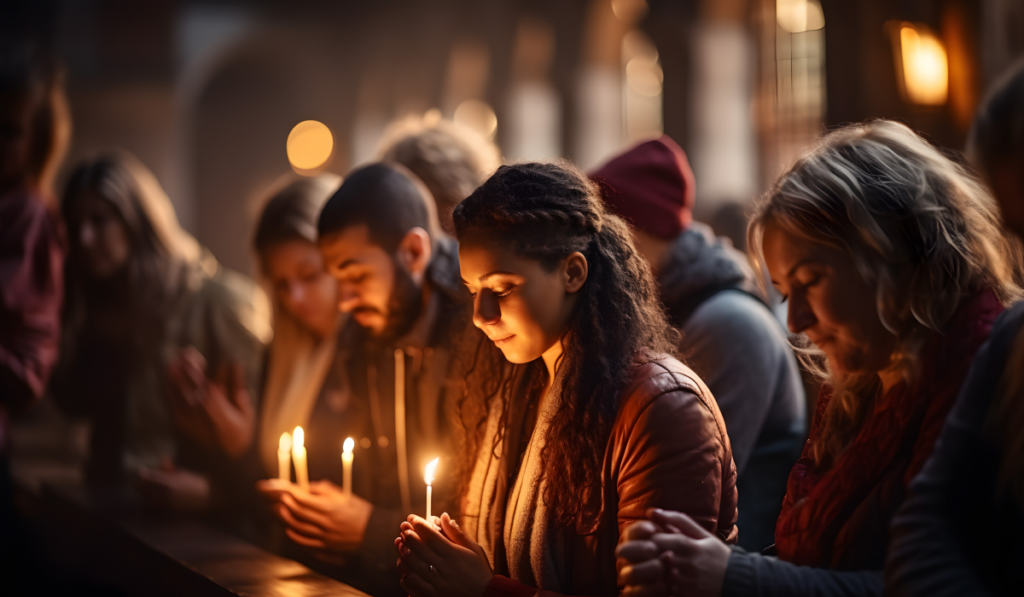
Legacy Giving: Everything You Need to Know
Legacy giving is when a donor leaves part of his or her soul behind when the earthly life is over. This donation is one last chance to support a meaningful cause. It’s a way to give a permanent stamp of approval to the work of a church or a charity.
A legacy gift is usually given to a church or a nonprofit after the donor has passed away. These bequest gifts are usually part of the last will and testament or the living will. Some donors leave a legacy gift so that the work of a nonprofit that is near and dear to their hearts will continue. Some donors were never able to fund the nonprofit during their lifetimes but want a piece of their estate to become a donation. Cash isn’t the only type of legacy a donor can gift. Stocks, real estate, and other personal property that might benefit the church or nonprofit can all be left as legacy gifts.
Legacy gifts can also begin while the donor is still alive and be continued after death.
As the baby boomer population ages, some experts believe there will be an increase in legacy gifts. The majority of baby boomers have already celebrated 60th birthdays. The kids are grown and out of college. The mortgage might have already been paid off. Boomers have disposable income at this point in their lives and it happens to be the same point where they are estate planning and thinking of where to leave their money. So how do you communicate that legacy gifts are welcome and necessary for your mission?
Legacy Giving Explained
Make sure that legacy giving is a frequent part of the church conversation. Talk with current donors and potential donors about how legacy gifts can set the foundation for the future.
Your website should have a space dedicated to legacy giving. It should explain the facts of this donation type and how to make sure to pay respect to the donor’s final wishes. There should be contact information listed for someone who is well versed in legacy giving and can field questions and provide answers. Maybe your organization’s printed materials can always include a line about legacy giving.
“Please consider making a donation to First Baptist Church when estate planning.”
You can mention bequests in regular forms of communication like email blasts or the weekly newsletter. That way donors and potential donors know that legacy costs are a common occurrence. Maybe a high-quality video featuring donors and the gifts of donors can be used to explain legacy giving.
If you introduce the idea of legacy giving often and make it part of any regular donation conversation, it’s more likely that donors will consider it when estate planning.
Asking Donors for Legacy Gifts
Let your donors know that leaving a legacy gift is simply part of preparing a will. The estate lawyer can make your organization one of the beneficiaries. A donor can also leave a letter spelling out last wishes. Even if it’s not a binding legal document, this helps guide the executor and other family members when they are making decisions. Some donors use their last wishes to continue their practice of tithing to the church. But make sure that donors know they don’t have to spell out the dollar amount that should go to the church or the charity. It’s perfectly fine to select a percentage of the estate. If the donor’s assets declined dramatically because of illness or long-term care, the donation will reduce in size appropriately.
Stress to your potential donors that a legacy gift is a way to leave a philanthropic legacy behind. Planning a gift from the estate fuels the future work of the organization that the donor cared about so much in life. A legacy gift makes a statement about what the donor valued. A legacy gift also allows a donor to leave a community a better place. Make sure to engage the donor throughout the process so the donor feels appreciated. Donors feel the deepest ties to churches and charities that share personal stories.
Different donors have different feelings about recognition for their gifts. Some want a printed acknowledgment in the newsletter, some want a plaque in the garden and others will prefer to remain anonymous. Maybe one donor would like a ribbon-cutting ceremony after the completion of a newly-funded addition. Tell your donors you will work to accommodate their wishes and let other potential donors see you make good on your promises.
Helping Donors Understand Legacy Giving
Give your congregants the opportunity to learn more about legacy gifts from professionals in the legal, accounting and real estate fields. Consider hosting an open house that answers questions about the process of legacy giving. You can go over how to make donor wishes known along with what kinds of gifts help the most. Maybe the building fund for construction ten years down the road needs donations. Maybe the scholarship fund can’t keep up with the rising costs of college. Your donors won’t necessarily know the need until you tell them.
Estate taxes are complicated things and each donor should seek the advice of a financial planning advisor. A simple bequest is not always the most tax-friendly option. Other strategies for giving legacy gifts include making the church or nonprofit a beneficiary of the donor’s IRA. They can also set up a charitable remainder irrevocable trust that first pays family members and other named beneficiaries. Once the estate pays this, the remainder goes to a specific charity.
Final Thoughts
Legacy giving can be a powerful experience for a donor and his or her family that want to support causes that are meaningful to them even after death. But the discussions about legacy giving should happen when the donor is full of life and carefully planning an estate. Let potential donors know how much they mean to your organization and how much good their legacy gift can do in the future.


